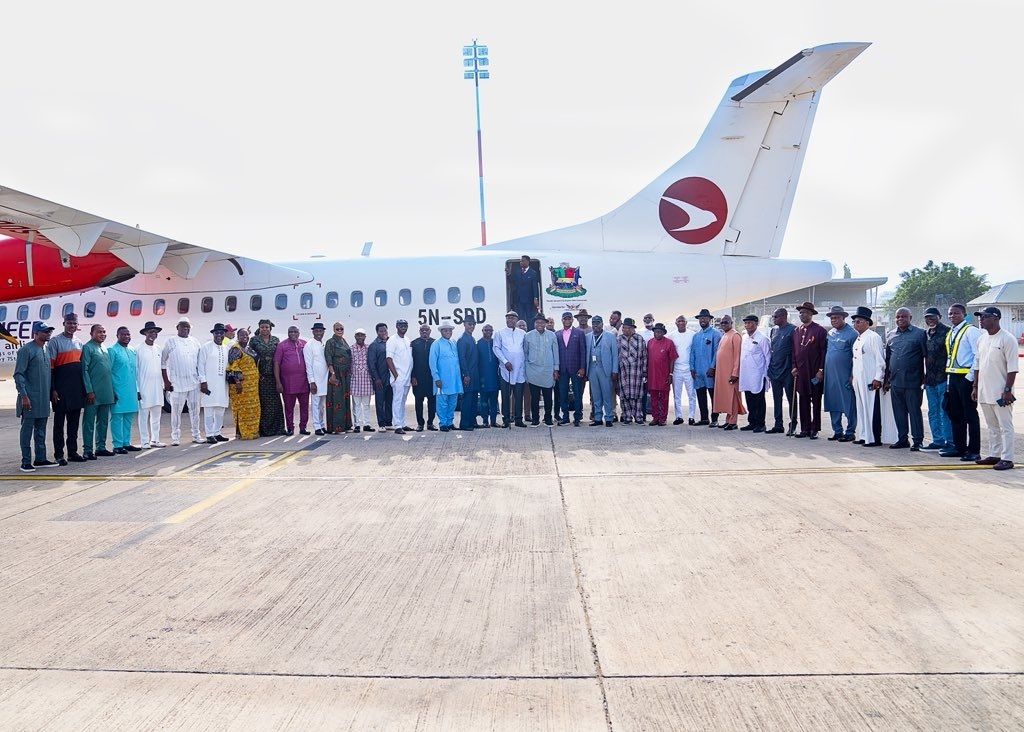
Kasim Sumaina in Abuja
Stakeholders driving the adoption of Compressed Natural Gas (CNG) in Nigeria have restated their unwavering commitment to ensuring a seamless national transition from petrol to cleaner gas alternatives.
Speaking on Wednesday at the second edition of the Autogas Nigeria Annual Conference held in commemoration of the World Sustainable Transport Day, participants emphasised that a full-scale shift to CNG would improve citizens’ welfare, lower transportation costs, and significantly reduce harmful emissions across the country.
Vice-Chancellor, Federal University of Transportation, Daura (FUTD), Prof. Umar Katsayal, described the transition to CNG as consequential to Nigeria’s economic growth.
Represented by Dr. Ibrahim Ahmadu, Katsayal noted that extensive research has shown that CNG vehicles emit substantially lower levels of particulate matter (PM), nitrogen oxides (NOx), and carbon monoxide (CO), with carbon dioxide (CO₂) reductions of up to 20–30 per cent—depending on vehicle type and fuel supply chain.
He said the conference theme, ‘CNG for All: Powering Nigeria’s Sustainable Future,’ is timely as it highlights the public-health and environmental benefits of cleaner energy adoption, particularly in densely populated cities.
While acknowledging that CNG is not a “silver bullet”, he stressed that it is a mature, practical solution capable of cutting transport costs, reducing air pollution, and stimulating value-chain development nationwide.
The Director-General of the Energy Commission of Nigeria (ECN), Dr. Mustapha Abdullahi, reiterated government’s commitment to positioning gas as Nigeria’s primary transition fuel.
With an estimated 210 trillion cubic feet of natural gas, Abdullahi said the country is “living in a decade of gas”, stressing that Nigeria’s vast reserves present a clear and compelling pathway towards cleaner and more affordable energy.
“It’s a no-brainer as common sense tells us that gas should be the pathway. For us, gas is a transition fuel,” he said.
He commended President Bola Tinubu for establishing the Presidential Initiative on Compressed Natural Gas (PICNG), which has accelerated the adoption of CNG across the transport sector, especially after the removal of petrol subsidies.
Abdullahi added that the initiative has increased public awareness of gas as a viable, cheaper alternative to petrol.
Managing Director/CEO of Automotive Gas Nigeria Services Limited, Hajiya Maryam Salihu Ibrahim, expressed appreciation to partners and participants, describing their support as “the powerful fuel driving Nigeria’s clean energy future”.
She reaffirmed Autogas Nigeria’s mission—since its establishment in 2021—to expand the adoption of CNG through vehicle conversion services, nationwide refuelling infrastructure, and technical capacity-building.
Ibrahim noted that this year’s conference theme reflects the growing body of evidence that positions CNG as a fuel of national importance.
She further stated that Nigeria stands at a defining moment in its energy transition journey and is uniquely positioned to lead the continent in gas-powered mobility.
She commended the Federal Government’s PCNGI as a strategic reform aligned with President Tinubu’s Renewed Hope Agenda, aimed at lowering fuel costs, boosting energy security, and driving inclusive economic growth.
Autogas Nigeria’s Chief Operating Officer and Business Development Lead, Mr. Kennedy Osagie, reaffirmed the company’s dedication to powering Nigeria’s shift to cleaner and more affordable transportation energy.
He highlighted some of the company’s major milestones over the past four years, including: Training and certifying over 1,000 Nigerian technicians in advanced green-energy skills; converting more than 2,000 vehicles to CNG, resulting in substantial cost savings for individuals and businesses;
establishing a nationwide technical support network with over 100 workshops onboarded through its affiliate programme; and
championing the SheGas initiative, among several other interventions
The conference was attended by key industry stakeholders, government officials, partners, and advocates of sustainable energy solutions, all reaffirming their commitment to advancing Nigeria’s clean-energy transition.


